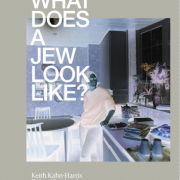More TV Vicar? – well yes, as it happens!
In October 2015 Bryony Taylor, a curate from Durham and self-confessed TV addict, participated in a panel discussion produced by the Trust for the annual Church and Media Conference. The session was called “More TV Vicar?” … Um, yes: we did shamelessly pilfer the title of Bryony’s excellent book exploring television depictions of Christians in all their – not always so obvious – glory. And now we’ve twisted her arm and gotten her to write a blog for our website too. Thank you Bryony!
Earlier this year DLT published my book entitled More TV Vicar? which charts the portrayal of Christians (and especially vicars) on British television for the past 30 years. I was delighted to be invited to be part of a discussion panel at the Church and Media Conference 2015 with James Cary, comedy writer (who I interviewed in my book), Daisy Coulam (writer for ITV’s Grantchester) and very excitingly, Frank Williams – the vicar from Dad’s Army!
We had a wide ranging discussion including some TV clips with famous vicar characters. One theme we discussed was authenticity – having two screenwriters on the panel helped us to note that character and plot are essential – these things come first, not what religion the character is supposed to be. This is something I explore in my book – many Christians expect too much of ‘Christian’ characters on television – they are not there as a great advertisement for the faith – they are characters in a story and they are there as part of an entertainment strategy, not a mission strategy! Daisy spoke of the importance of showing the human side to the Rev’d Sidney Chambers in Grantchester – that he has feelings too – he is a fully rounded character. This was the same with the Padre Mary character from James Cary’s Bluestone 42, she is depicted as flawed and weak, but is not a caricature. We are beginning to see on our televisions more rounded portrayals of vicar characters.
Frank Williams spoke about his own character, Rev’d Timothy Farthing, and that even though his character was depicting a cleric from the 1940s it was not a particularly sensitive portrayal. Rev’d Timothy is not particularly nice – which is part of the humour that comes across in Dad’s Army. Having said that his vicar character was very much ‘of its time’ and therefore familiar to people. Being a church goer himself (and a member of General Synod) meant that he could lend the character an air of authenticity. Frank went on to say that the feeling now is that people simply aren’t interested in faith or religion. The days of people being able to ‘get’ the ‘blessed are the cheesemakers’ joke from Monty Python’s Life of Brian are long gone. Dad’s Army, broadcast in the 70s and 80s was put out at a time when people knew what to expect of a vicar character – they all knew one in their own town or village. This societal shift could be perceived as being a bit depressing but I would challenge that.
People who know me well know that I am the eternal optimist – my husband says that my glass isn’t half full, I just think ‘ooh, I’ve got a glass!’ And so when my book came out I said in a number of interviews that I thought that we would see more ‘vicar’ characters on our televisions over the next few years. Little did I realise that this would come true very quickly – Grantchester is currently filming its second series, ITV just showed a flagship 3-part drama, Midwinter of the Spirit with a woman priest in the starring role and Sky 1 brought out comedy drama You, me and the apocalypse featuring Rob Lowe playing a swearing, smoking priest in the Vatican alongside an Italian nun. This is all in the 6 months since the book was published (maybe I need to get started on volume 2?) Why all this sudden interest?
Let’s take the character of the curate from ITV’s award winning crime drama Broadchurch. There is a scene at the end of the drama in which the curate (who is a suspect in the murder case at one point) organises a powerful act of remembrance on the beach for the murdered child. This is the climax of the series and illustrates the truth that:
‘The church is still a place where people put the emotions that won’t go anywhere else.’ – Rowan Williams quoting a former student[i].
Williams goes on to say, in the same speech:
“I believe we are living in a society which is uncomfortably haunted by the memory of religion and doesn’t quite know what to do with it, and I believe we are living in a society which is religiously plural and confused but not therefore necessarily hostile.”[ii]
The memory of religion lingers in British society. Occasionally the remembered faith re-enters the public sphere – notably on Remembrance Sunday but also events such as the Queen’s Jubilee and the Royal Wedding or whenever a crisis hits a town. Slowly the church seems to be regaining its permission to be there, legitimately to have something to say.
This idea of religion (for that, read Church of England in this instance) ‘haunting’ comes across in a curious comment in a recent report on the religious output of the BBC:
“Though both Songs of Praise on BBC One and Sunday Worship on Radio 4 have been a feature of the schedules for quite literally a lifetime, it always seems slightly surprising when the pattern of family viewing on TV, and news and magazine programmes on radio, are interrupted by a religious service. It feels at the same time to be slightly anachronistic, and yet strangely reassuring.” – Stuart Prebble (my emphasis)[iii]
It is not altogether different from the way people feel about the Shipping Forecast on Radio 4:
“The Shipping Forecast remained on air for no reason other than it is still wanted by many thousands of people who had no logical purpose in listening to it – other than the most basic purpose of all, of course, which was to make life a little bit richer in some intangible way.”[iv]
The same could perhaps be said of the church – and especially the Church of England. People still want it, they still want to see it on their televisions, they just don’t quite know why.
Christendom has lost its place and the church (especially the Established Church) is losing its footing but this could be an opportunity for creativity. Pope Benedict said that in our current times Christians need to be living as a ‘creative minority’. Green and Robinson develop this idea in their book Metavista:
“In times of liminality, such as the one that the West is presently passing through, it is more important to live as creative minorities than to live either as coercive minorities or as ineffective majorities.”[v]
We are still seeing Christian characters on our televisions and indeed the more recent of these have been well-rounded and realistic rather than stereotypes or caricatures. I think we will only see more portrayals of Christians on television, not less. People are curious again about what drives people of faith: it seems that television producers are picking up on this. That can only be a good thing.
[i] Rowan Williams, ‘Faith in the public square’, Lecture at Leicester Cathedral, 22 March 2009
[ii] Ibid.
[iii] Stuart Prebble, ‘A BBC Trust Review of the Breadth of Opinion Reflected in the BBC’s Output’, BBC Trust, July 2013
[iv] David Hendy, Life on air: a history of Radio Four (Oxford: Oxford University Press, 2007)
[v] Greene, C. & Robinson, M., Metavista: Bible, Church and Mission in an Age of Imagination (Milton Keynes: Authentic, 2008), p214.
Find out more about Bryony and her book here.
And there’s more about the Church and Media Network who hosted the “More TV Vicar?” session here.








Leave a Reply
Want to join the discussion?Feel free to contribute!